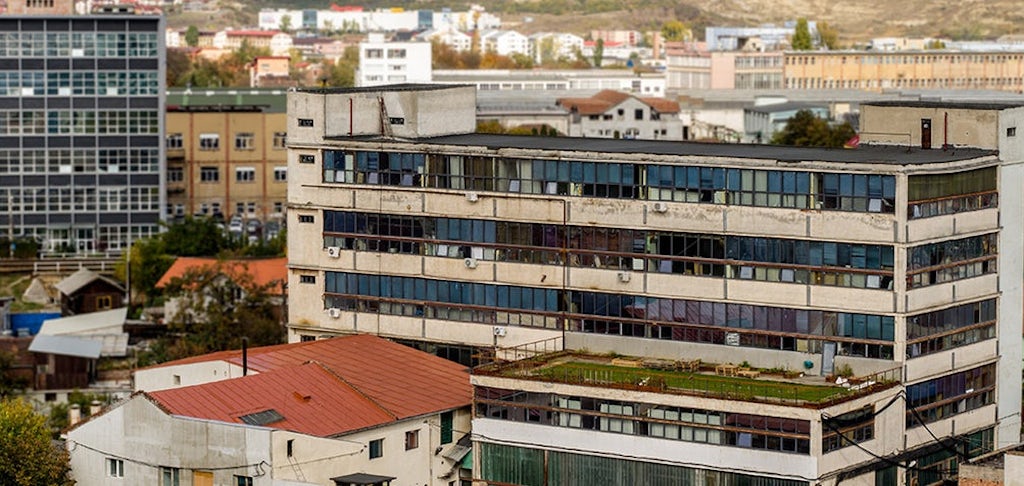
From industry to innovation
The Paintbrush Factory in Cluj

This text is based on the presentation by Corina Bucea and Diana Marincu of The Paintbrush Factory (Fabrica de Pensule) held at our second round table on culture in Europe. This afternoon focused on understanding the actual political and social context in Central and South-East Europe. During their presentation Corina and Diana went into detail on the problematic politics of the arts scene in Romania and their own artistic answers to deal with this specific situation.
Deze tekst is enkel beschikbaar in het Engels
You can read this summary or download the full text below.
The Paintbrush Factory (Fabrica de Pensule) is an independent and collective initiative which brings ideas, events and projects together of cultural organizations, galleries, producers and independent artists in Cluj. Before describing the internal workings and ambitions of their organization, Corina Bucea and Diana Marincu summarize the state of cultural policies in Romania. They criticize the lack of a national strategy and describe how The Paintbrush Factory responded to this deficient policy by converting an industrial building into a contemporary art center in the city of Cluj and being the first to assemble such a large community of artists and cultural workers in Romania.
The Paintbrush Factory positions itself within the profound disparity between the public (state funded and state controlled) and the independent sector. Through horizontal structures and consensual decision making, open work formats and collectiveness rather than individual authorship they take up their responsibilities and try to answer the expectations of the arts field the Romanian institutions fail to respond. Because of this collective thinking and organic growth The Paintbrush Factory is an interesting example in innovative institutional models.
Due to its intense activity, the Paintbrush Factory triggered an interest from Western curators, cultural workers, artists, and visitors, and succeeded in creating an open platform both locally and internationally. By applying political pressure European partners could help instigate change in terms of institutional models and cultural policies up above the hierarchies of decision makers. In the end, ideas for artistic collaboration are proposed to meet future challenges such as artistic mobility, production budgets and knowledge sharing opportunities.





